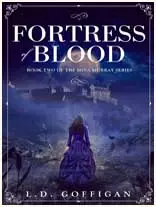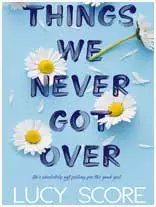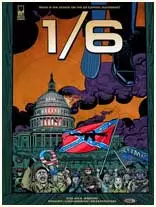Self-Publishing vs Traditional Publishing [Which is Better?]

The age-old debate: to self-publish or to go traditional? At Scribe, this is a hot question, and it's not always black and white.
Navigating the Publishing Waters: Why the Complexity?
Many believe that answering the book publishing question is difficult and time-consuming, much as untying a knotted ball of yarn. Actually, only a small minority (2%) find themselves in this complex network, though. About 97%, the great majority, would find self-publishing more suited for their aims. For 1%, on the other hand, the glitter and glory of conventional publication call. This article seeks to clear the road for the 98% of you so you may boldly turn in the proper direction.
Don't worry if you live in the 2% realm's gray parts. For you, there is a more thorough overview covering the subtleties of both choices.
Self-Publishing: The Author's Kingdom
Regarding self-publishing, the author is the king and the architect at once. Having the keys to their rights and royalties, they keep sovereignty over their works of art. This kind of publishing gives writer’s unmatched freedom so they may guide the path of their book from idea to the hands of readers. They write the story not only on the pages but also in terms of presentation, marketing, and distribution of the book. Every choice, every tactic, every reward in this field comes back to the author.
Traditional Publishing: The House's Empire
Entering the hallways of conventional publishing, one enters an established empire where the publishing house takes the stage. Authors here exchange some degree of their autonomy for the knowledge, tools, and connections the publishing business provides. Although they might write the story, the publishing business handles the rights and royalties; often, they curate the final product to fit their brand and market needs. Authors joining a lineage in this arena gain from the publishing house's tradition and infrastructure but at the expense of some freedoms and possible income.
Elite Club of Traditional Publishing
Negotiating the paths of conventional publication sometimes feels like trying to enter an elite, prestigious club. Getting a publishing contract in this industry is about having the appropriate mix of reputation, marketability, and—sometimes—serendipity, not only about having great work. This is a scene in which few people get all the attention, but barriers abound.
For the lucky few who make it possible to influence the guardians of this club—that is, the editors and agents—with an offer including a startling $500k+ advance, the choice to join becomes really simple. The promise of such an advance is not only about the money; it's a nod of validation, a hint that the industry titans see promise, marketability, and major returns on your work.
But among this club, who are the elite members? Most likely, who are the ones most likely to come to this ideal junction?
1. Celebrities with Glitzy Allure:
Their lives are always under public view, and the people ravenously devour their stories. These people bring with them a ready-made following eager to buy their stories, anecdotes, and analysis.
2. Athletes with Global Acclaim:
Their on-field, track, or court success has made them household names. Their travels—which are full of challenges, victories, and even controversy—offer readers a close-up view behind the scenes.
3. Hollywood's A-Listers:
Often in the literary world, the brilliant stars of the silver screen—whose names alone can ensure lines at the box office—find similar popularity. Usually, bestsellers are memoirs, fiction, or even lifestyle books.
4. Political Powerhouses:
Their choices shape countries; their policies affect world dynamics. Those who enjoy the subtleties of government and world affairs eagerly await the stories, ideas, and philosophies of these leaders.
5. CEOs with a Golden Touch:
Stories of ambition, creativity, and the grit it takes to ascend the corporate ladder abound from business magnates, inventors, and industry disruptors.
6. Literary Maestros with a Track Record of Blockbusters:
Established writers—those whose past works have topped the charts and received honors—are sometimes welcomed back into the conventional line with great open arms and heavy advances.
7. Insiders with Deep-Rooted Publishing Connections:
Sometimes, it's about who you know as much as the narrative you share. Strong industry networks and knowledge of business ebbs and flows help those navigating their way to a great deal.
Every one of these members offers something different—a promise of not only sales but also a narrative that appeals, intrigues, and captivates the group imagination.
Democratic World of Self-Publishing
Self-publishing is like a large city with passionate voices and future towers. Unlike conventional publishing, here, everyone is free to offer their backgrounds, talents, and experiences.
In this open space, everyone may shine, share their story, and locate their audience. Look at some current citizens of this democratic land:
1. Business Moguls:
These visionaries either created empires or ascended to business leadership. Many of their publications mix memoirs, tactics, and ideas to expose readers behind the scenes of the high-stakes business.
2. Visionary Consultants:
These professionals share their methods, experiences, and case studies to enable other companies to thrive with a rapid eye for solutions and an easy grasp of industry expectations.
3. Pioneering Entrepreneurs:
Their tales of mistakes, hazards, and inventions both inspire and warn. Their tales usually impart entrepreneurship, creativity, and resiliency.
4. Corporate Titans:
Executives in the boardrooms argue about management theories, leadership styles, and difficulties running big companies. Their books serve candidates, aspiring leaders, and business students going forward.
5. Money Maestros:
Wealth management, investment methods, and the always-shifting economy are studied by financial advisers, analysts, investors, and consultants.
6. Legal Eagles:
Legal advisers and attorneys streamline rights, rules, and responsibilities. For laypeople, they typically streamline difficult legal ideas.
7. Medical Pioneers:
From innovative surgery to all-encompassing wellness programs, these experts talk about medicine, wellness, and patient care.
8. Life-Changing Coaches:
For spiritual enlightenment, career growth, and personal development, coaches provide transforming techniques and motivating stories.
9. Fresh Literary Talents:
Self-publishing has revolutionized creative non-fiction, poetry, and fiction. Without gatekeepers, new writers can try, grow, and discover their voices.
There is a broad field of self-publishing covering every voice, fringe or mainstream. In this scenario, writers are businesspeople, creativity is unbridled, and viewers have a lot of choices—each as special as the writer.
Navigating the Publishing Crossroads
Starting your publishing career can feel like standing at a crossroads with several avenues open ahead. Every road has attractions, difficulties, and particular ends. Let us walk you through the decision-making process with our detailed road map, which is meant to help you make the most appropriate choice.
Step 1: Evaluating Opportunities
Question: Can you secure a traditional publishing deal?
Indeed, maintain this road open and proceed to the next checkpoint if you have been given a concrete offer or have strong industry contacts that would lead to one.
The self-publishing path calls if you value total control over your work or if the world of agencies, manuscript submissions, and waiting for a publication nod seems onerous. This road offers a canvas all your own to paint and a quick line of action.
Step 2: Understanding Your Core Values
Question: What is the driving force behind your desire to publish?
The conventional path could be your golden brick road if you dream of having top literary critics analyze your work, land a spot on a well-known bestseller list, or earn an upfront financial advance.
Self-publishing is your domain if your vision goes beyond immediate gains and explores creating a lasting legacy if you value the freedom to choose every aspect of your book, from its cover to its marketing strategy, or if you want to challenge conventions and produce something really innovative. Here, you only have the pen and the guidelines within your control.
Step 3: Making the Choice
Having now overcome these obstacles, stop and consider. See your book in your hands and consider the audience you wish to reach as well as the trip you wish to travel. Trust in this vision; let it lead you to the road that seems appropriate. Remember, your passion, dedication, and your own voice will really define your success regardless of the path you decide upon.
Reflecting on the Publishing Landscape of 2024
The democratization of publishing tools and platforms allows authors to direct their works directly. 97% of writers prefer self-publishing for its freedom, flexibility, and direct reader engagement, therefore indicating this new age of empowerment.
With its long-standing and extensive distribution system, traditional publishing still draws a meager 1% of readers. These authors might be ready for significant changes, respect current systems, or seek credibility by working with respectable publishing houses.
Between these two really important categories, the interesting 2% resides. These authors are special since they balance the advantages and drawbacks of every strategy, maybe thinking of hybrid models and dancing on the margins. Their decisions are tough. It calls for a close study of their working practices, priorities, and objectives.
Though trends may lead, 2024 reveals that publishing is quite intimate. Factors include changing reading surroundings, market reality, and creative aspirations.
limited Time offer
- 00
- 00
- 2





